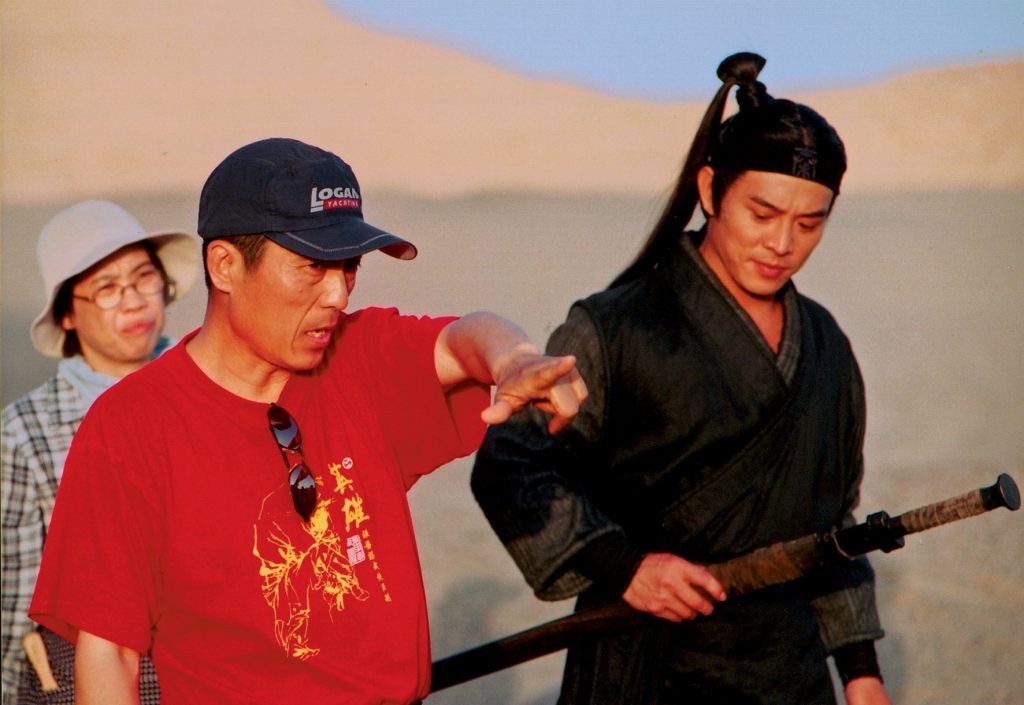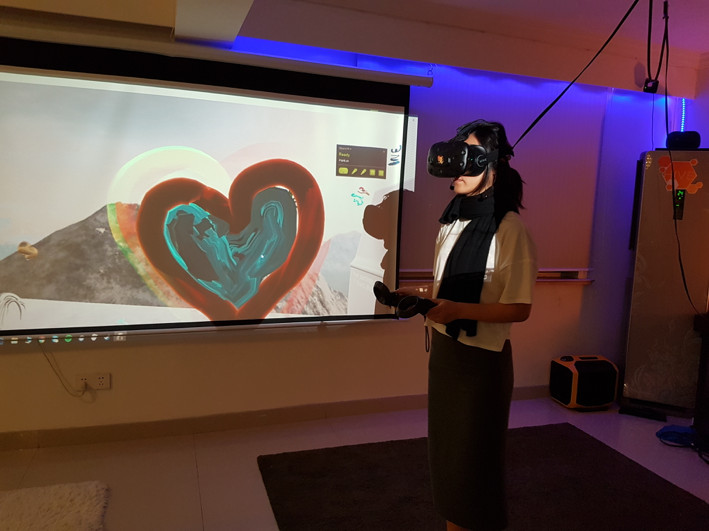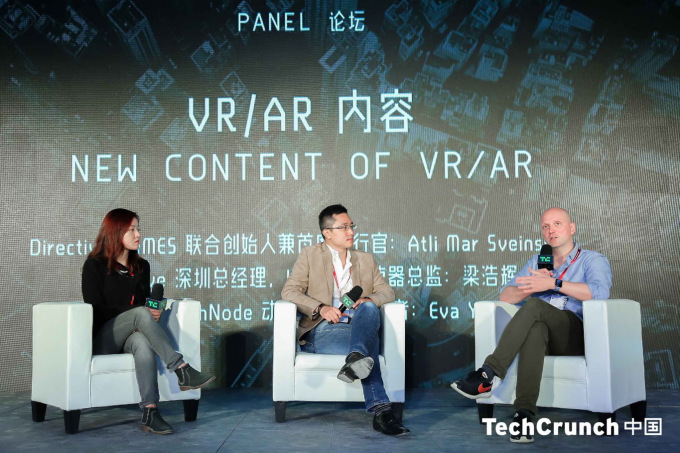Last time I interviewed Digital Domain co-founder and visual effects pioneer Scott Ross in 2014, he was ebullient about the potential for China’s burgeoning movie industry, but spoke in no uncertain terms about the pitfalls of investing in Hollywood studios. His warnings went unheeded. Two years on, China is careering headlong down that perilous road.

From exorbitant investments in Hollywood to the prevailing domestic technophilia, Digital Domain co-founder Scott Ross is bemused by China’s movie business.
Ross has not been sitting around in the meantime. Back in LA, he has been busy assembling a crack team of creatives and scientists to form virtual reality solutions agency, Virtuosity, seeking to remedy the issue that, “Virtual reality is like sex in high school, everybody’s doing it but nobody is doing it very well”.
In December 2016, the new would-be hub for the Chinese film, VFX and virtual reality industries, Advanced Imaging Centre For Future Visual Entertainment (AICFVE), marked its inauguration with an international conference at the Beijing Film Academy, at which local and international experts laid out the domestic state of play, the challenges ahead and development strategies. Ross, an international advisor to the AICFVE, took to the stage to the recount the evolution of techniques and technology across three decades helming industry-leading companies, all the while stressing that story always trumps tech.
Following his presentation, I joined Ross to discuss China’s Hollywood ‘mistakes’, its quest to make global movies and the realities of VR.

The Chinese Film Industry
Chris Colman: You’re an advisor to the AICFVE, which aims to become a hub of research, technology and guidance for the Chinese film and virtual reality industries. Why did you want to be involved?
Scott Ross: A couple of reasons. One is that old Duke Ellington comment which is, “It don’t mean a thing if it ain’t got that swing, doo-wa, doo-wa, doo-wa.” My fear is particularly, having spent a lot of time in Asia, a bit of time in China, that the Asian audience and the Chinese community are much more enamored with the concept of technology than they are with the concept of intellectual property, creativity, and art. I thought I would be swimming upstream, but I wanted to get involved, to be the guy who’s constantly banging the drum, to be the lone voice that’s asking, “What’s the story? Why are we doing this? It’s really cool that you have 16K resolution and no latency, but what are you saying?” I think the technical community definitely, and particularly the Chinese community, don’t get that.
CC: When we spoke in 2014, you were enthusiastic about the potential for China’s film industry, and had ideas about making a film here. In your SIGGRAPH Asia (Shenzhen) keynote you warned that China should not do as other countries have done and invest in the big Hollywood studios. As it happens, that is what China has been doing very –
SR: Aggressively.
Chris: Aggressively. Has that put you off China as an environment in which to pursue projects? Do you despair about how things have happened so far?
SR: I think they’re making big mistakes. I’m shocked that the powers that be within China have the cash that they have, and are spending it the same way as I’ve seen the Germans, the Saudis, the Japanese and the Koreans do – in all the wrong ways. Personally, I don’t understand why one would pay a billion dollars to buy Dick Clark Productions. I don’t understand what their business strategy is. For the life of me, I cannot figure it out. Maybe just because I don’t have the insight, I don’t get to sit in the Wanda boardrooms. There’s the old adage of “you don’t know what you don’t know”. So I don’t know. But from the outside looking in, I think they’re going about it in totally the wrong way. I hope I’m wrong.
CC: The official line is that the purchases are all about collaboration, working together with Hollywood to develop China’s ability to tell stories with global appeal. So far we’ve not seen that happening at all. Even “The Great Wall”, a US-China co-production set in China, largely in Mandarin, directed by Zhang Yimou, still feels like a US-driven project.
SR: The first question that the Chinese filmmaking community has to get their heads around is, what is it that they want? Do they want to be a global media player, or do they not? If they don’t want to be a global media player, and their goal is filmmaking for a Chinese audience – because Lord knows there are enough people in China to build a giant business – then that is one direction. If the goal is to be a global media player, that’s another direction. Then the question is, “Well, why do you want to be a global media player?”
My experiences have been that, oftentimes, the powers that be don’t necessarily look at film in the same way that the west looks at it. Do they want to propagandize the Chinese way of life? In conversations that I’ve had it always gets down to, “The reason America has had a pervasive culture around the world is because of Hollywood. We want to build something to make Chinese culture pervasive around the world.” I think that’s a very long road to go down and the question is, are western audiences going to be accepting of the Chinese storytelling sensibility? If I were a betting man, I’d say “no”. Take “Lost in Thailand.” I’ve tried to watch that five times. I can’t get through it, it makes absolutely no sense to me. But to the Chinese audiences, it’s stupendous, right? Similarly, we look at the great Japanese animator Miyazaki. He makes, “Howl’s Moving Castle” and it does, I don’t know, $250 million in Japan and Asia. Meanwhile it opens in the United States, it’s promoted by the Walt Disney Company, and it does no business. Are there cultural walls that just can’t be addressed? If the Chinese filmmaking community wants to make films that elevate the Chinese lifestyle around the world, will the rest of the world be open to or accepting of those kinds of stories, or do you have to invigorate or dilute it with a western sensibility? Name a Chinese film that’s done really, really well in a global marketplace. “Kung Fu Panda”? It’s Kung Fu, the names are Chinese, but it’s a DreamWorks movie. There’s nothing Chinese about it. How about “Crouching Tiger, Hidden Dragon”? It’s sort of a Chinese film but it’s really developed in a way that is more of a Hong Kong film, and a Hong Kong film is not necessarily a Chinese film.
The other question that needs to be looked at is, as the quota for western films has increased in China, does it wind up handicapping the Chinese filmmaker? How does a Chinese film wind up competing with something like “Avatar 2”? Are those the kinds of conversations that they’re having in the boardrooms of Wanda and Alibaba and Huayi Brothers? If they are, boy, I’d love to be involved in it because from the outside, I don’t get it.
CC: What do you make of the concerns that a group of US Senators raised recently about the impact that the purchases may have on American films, that they might be pushing pro-Chinese propaganda?
SR: That’s above my pay grade. It’s hard enough to think about how you make films than to think about what governments are doing, particularly my government at this point. I find it difficult, and I could be wrong here, but I find it difficult to imagine that Marty Scorsese and Jim Cameron will ever acquiesce to SAPPRFT, that SAPPRFT will tell Jim Cameron as a filmmaker, what to do. I just can’t imagine that. That’s not what I’m worried about. I’m more interested in building bridges and trying to get the Chinese filmmaking community to understand what good creative is, to tell good stories on a global level. We’ve seen that happen in Korea where the wealthy Koreans send their daughters and sons to art schools outside of their country. Some Korean cinema is fabulous.
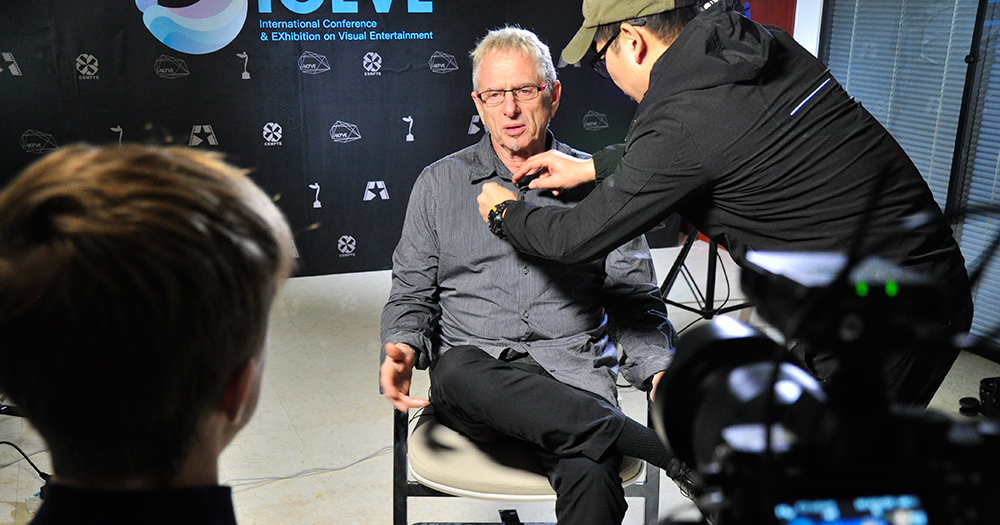
CC: Why is there so much focus on technology vs. story in China’s film industry?
SR: Oftentimes people that are uncomfortable with creativity or intellectual property glom onto technique and technology. It’s much easier to talk about technology than it is to talk about creativity. Creativity is so ephemeral. What is a good movie? What is a good actor? What is a good script? That’s a very difficult conversation to have, whereas talking about process, technique or software applications, the time taken to be able to do things, it’s a lot easier. My concern is that – and it’s happened over and over and over again in the industry – if we continue to just look at technology as leading the effort, we’re missing the point. What comes first, the chicken or the egg? Really, creativity is what charges technology. There have been times in the last 35 or 40 years where a new technology ushers in a whole new way of filmmaking – let’s say analog to digital – but most of the time it’s the creative people that drive the need for technology, not the technology people driving the need for creative.
CC: Which of the tools available today would you love to have had back in the day?
SR: I actually like the tools that we had back in the day more than the tools we have today. I’m really a fan of “if you can do it in camera, do it in camera”. I’m still a big fan of models and miniatures. I was at the cusp just as we brought in digital compositing. One of the big problems back early in my career was optical compositing and the ability to resolve images and having matte lines and noise being built up over generations of film being exposed. That’s obviously now gone away because it’s all digital. It would’ve been great to have that in the early and mid ’80s, but we had it in the late ’80s and early ’90s, though it was crude in the beginning.
The tool that I wish we had today that we had back then, is good script writing, good stories and good directors. Give me a good story with mediocre effects. I’ll take that any day over a bad story with great effects. In fact, because the ability to create imagery is relatively easier today, filmmakers wind up adding a whole bunch of effects in the hopes that it’s going to save the film or carry the story. It adds no value and I think at times it’s detrimental. Look at what George Lucas did in “Star Wars” Episodes four, five, and six. The effects don’t stand up, but the films do. Then look at episodes one, two, and three where there’s a crapload of visual effects happening all the time and they don’t stand up at all and the films stink.
CC: What about previs and virtual production? Wouldn’t that have helped in the old days?
SR: Virtual production and previs are all great. That evolution has added a whole element of time and camera movement that, from a directorial point of view, allows for a lot more flexibility and considerably more efficiency on the set. On the other hand, it allows people that might not have had access to the material back in the old days to see it, understand it and make their comments, which can derail it. One of the big problems that I see in Hollywood filmmaking is there are so many cooks that all think they know what they’re doing. That’s why you get people that are like dilettantes, like my ex-partner who became as tough as nails and became a gorilla, and it’s basically to fight off the powers that be in Hollywood that are trying to tell a filmmaker what to do.
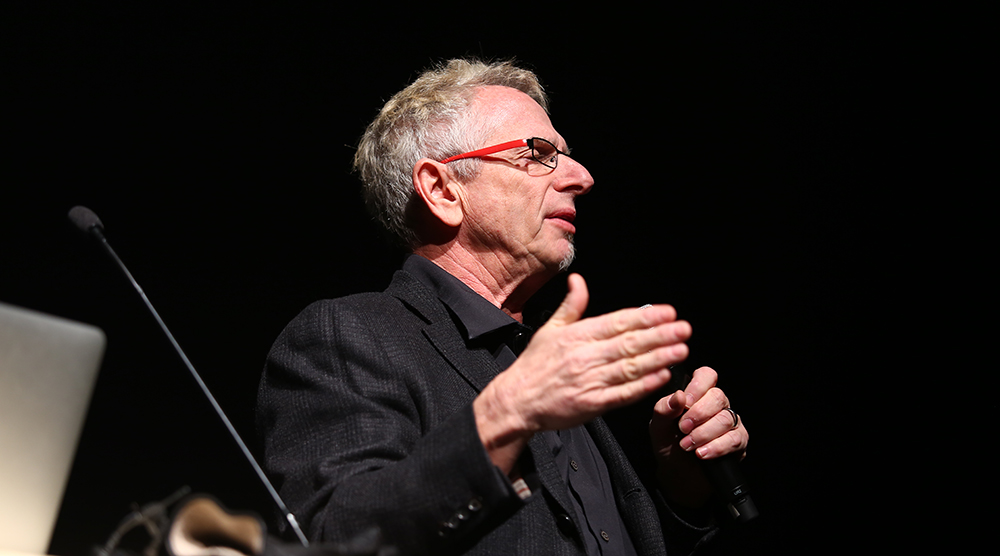
Virtual Reality
CC: Talk me through the evolution of Virtuosity VR.
SR: Years ago I got enamored with the concept of virtual reality when we were looking at Evans and Sutherland machines and going to the Department of Defense and watching multiple screens. It was exciting to think about what it might become. I always used to laugh at it because it was neither virtual, nor was it real. Then things like “Lawnmower Man” further invigorated me into thinking that this could be a new media format.
After I sold Digital Domain, I was looking for what I might do next, what the third act might be. There was nothing that really excited me very much. It wasn’t until 2013 when Rony Abovitz, the chairman and founder of Magic Leap, asked me to be involved with his company, and started to talk about the things that he wanted to do, I started to think about what I always wanted to do, which was be involved in content, creative ideas and making films and/or VR that was exciting. I looked to raise money so I put together a small team, a pitch deck and a video. When I went out into the investment community, I might as well have been speaking Swahili. They just didn’t get it, so I shelved it.
Several years went by. I was approached by Oliver Stone and his son, who had an idea to do a virtual reality piece, and they re-introduced me to Brett Leonard, the director of, Lawnmower Man. Brett and I clicked and, over time, we developed this concept of a platform that we call “Storyworlds”, that would allow for the monetization of VR, not controlled by the headset companies, to allow the user base to be able to create within a virtual reality environment. Think of a massive, multi-player online role-playing game, with brands, musical acts and users, but curated by world-class Hollywood people and creative talent. But again, we were a little bit ahead of the curve because there was no real user base yet. The high-end headsets weren’t out. We weren’t seeing the kind of market saturation that we thought we would see by this time.
Meanwhile, there’s a lot of noise out in the marketplace about VR. In LA, you can literally can throw a quarter and hit a virtual reality production company. Every Tom, Dick, and Harriet has a virtual reality company and very few know what they’re doing. There’s a buzz out there so brands are interested, studios are interested, IP content holders are interested in it. So we put together a solutions group with world-class people from psychology, sociology, medicine and other scientists and started to go after clients who were excited about having a group of people to help them set up their VR strategy. We’re not a production company, we’re not going to bring in a Cinema 360° camera and do what so many of those other production companies do – that’s not our interest. We’re acting more in some ways like an agency, where we work with a client, develop creative, develop strategy, oversee production and deliver statistical analysis of how people see it and how they’re moving around in that environment.
CC: What has been the response so far?
SR: It’s been really good. We’re knee deep in conversations with Mattel and Starbucks and Sony and Samsung. Almost everybody that we’ve approached feels the need to understand the space better and I think feels comfortable dealing with senior people who are not selling anything. We’re just helping them understand it.
CC: How would you sum up the current VR landscape?
SR: Everybody’s very, very excited about VR, especially in China where the Chairman of the party says it’s one of the most important things to focus on in the entertainment sector. I agree that it will come, but I’m concerned that we’re now moving out of that moment of excitement and going into the desert. My hope is that we’ll be able to spend those 40 days and 40 nights and come out the other side. I think the other side is as powerful as powerful can be. I’m a firm believer, but I’m not standing on the mount and saying, “This is how it has to be right now.” There are a lot of issues that still plague the industry.
CC: What is the biggest issue?
SR: There are two big issues and they’re not technical; the technical issues will be solved or have been solved already. Number one is, there’s no killer app. What am I going to see that’s worth it? Where’s the juice? Why will I continue to come back and watch this stuff? Number two, there’s no pathway to monetization. How do you buy it? Where does it go? There’s really not yet a determined platform. Right now, if you want to use an HTC Vive or an Oculus Rift, you’ve got to have a pretty powerful personal computer. We’re at the moment now where we’re rubbing sticks to create fire. I absolutely believe there’s going to be fire, but it’s not tomorrow.
CC: Do you see any standout companies out there driving things forward? Say, Magic Leap?
SR: [Magic Leap] is the most exciting breakthrough we think we are going to see when it comes out. There are very few people that have actually seen the product. From my experiences with Rony, he’s pivoted away from starting with an augmented reality environment to a mixed reality environment. Now, it seems like he is hell bent on re-defining what computers are and how we interface with technology in every aspect of our life. I hope to God he does it.
CC: Many suggest that the key to better VR content is getting the best creators and film directors to work in the medium. Currently though, most say the tech is too immature. When and how will we start to see leading creators experimenting with AR and VR?
SR: The top Hollywood directors today are not going to be the men and women that are directing AR and VR. If you’re used to driving a Rolls Royce, why are you going to be willing to get into a little Fiat? There’s no money yet in AR/VR and there is no great opportunity yet in AR/VR. If you’re at the top of your game, if you’re Steven Spielberg or Marty Scorsese or Jim Cameron, there’s no reason for you to be involved with AR and VR. Additionally, there is the comfort with technology that they’ve grown up around. I remember I had a fight on a stage in New York City with Spike Lee. He was saying, “I will never cut with a computerized editing system. I have to feel celluloid under my fingers.” That’s a typical response of old fashioned filmmakers. [The creators are] going to be youngsters. Just like back in the ’70s we saw the birth of auteur cinema that came out of Lucas and Coppola and those folks. They were the young lions. The older guys, they were like “forget it, give me my big old Mitchell camera, I’m not shooting anything handheld”. It’s always the younger folks.
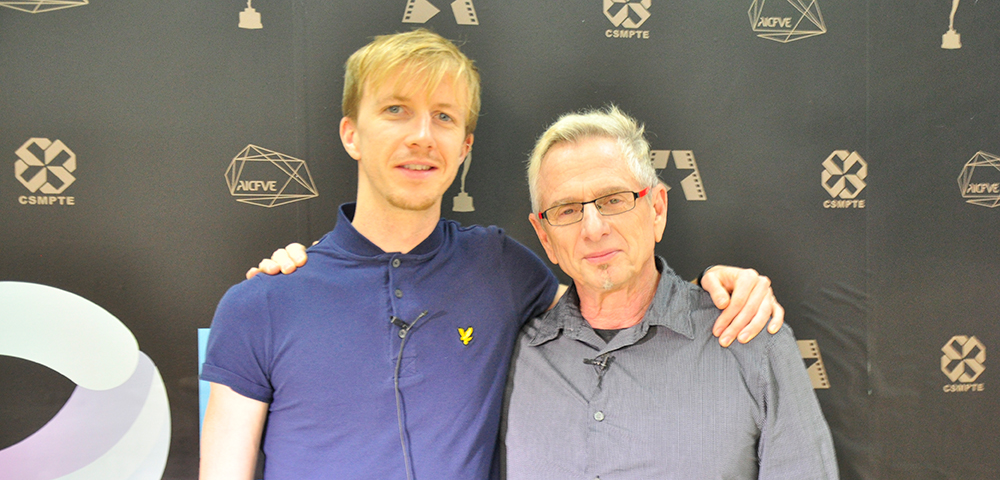
CC: Some have said that putting the tools of VR creation into the hands of ordinary people is going to release an explosion of creativity. Do you agree?
SR: I don’t agree with that at all. All we have to do is look at something like YouTube, or the early days of Adobe PostScript where all of a sudden there were 400,000 journals out there and 98% of them were terrible. If you take a Stradivarius violin and give it to me and take the world’s worst five-dollar violin and give it to Jascha Heifetz, who are you going to want to listen to?
CC: Is it too early to start worrying about the dangers of VR?
SR: No, it’s not too early. Actually, we should be worried about it all the time. That’s why in Virtuosity we have world-class psychologists, like Skip Rizzo, who’s the head of the USC psychology group that deals with VR. Virtual reality could be the most powerful positive tool for dealing with post traumatic stress disorder, sexual dysfunctions, Parkinson’s Disease, etc. but it could also be a very negative tool to do terrible things. As soon as we start talking about it we need to address it, focus it, and understand it. I hope that was your question because I jumped on you.
CC: Hah, it was. What is your biggest fear about VR?
SR: My friend Jim Morris made a movie called, “Wall-E,” where they’re sitting on the deck of the ship and they’re all wearing their headsets and drinking their Super Gulps and they’re all 400 pounds. That’s my biggest nightmare.
CC: How long till we get there?
SR: I mean, America’s almost there already, haha.
Chris Colman is a creative and communications professional working in the animation industry. He consults for Oriental DreamWorks and the Advanced Innovation Centre For Future Visual Entertainment (AICFVE) at the Beijing Film Academy, and writes for Animation World Network (AWN.com) and Variety, amongst others.
– This interview originally appeared on Christopher Colman’s Blog.



